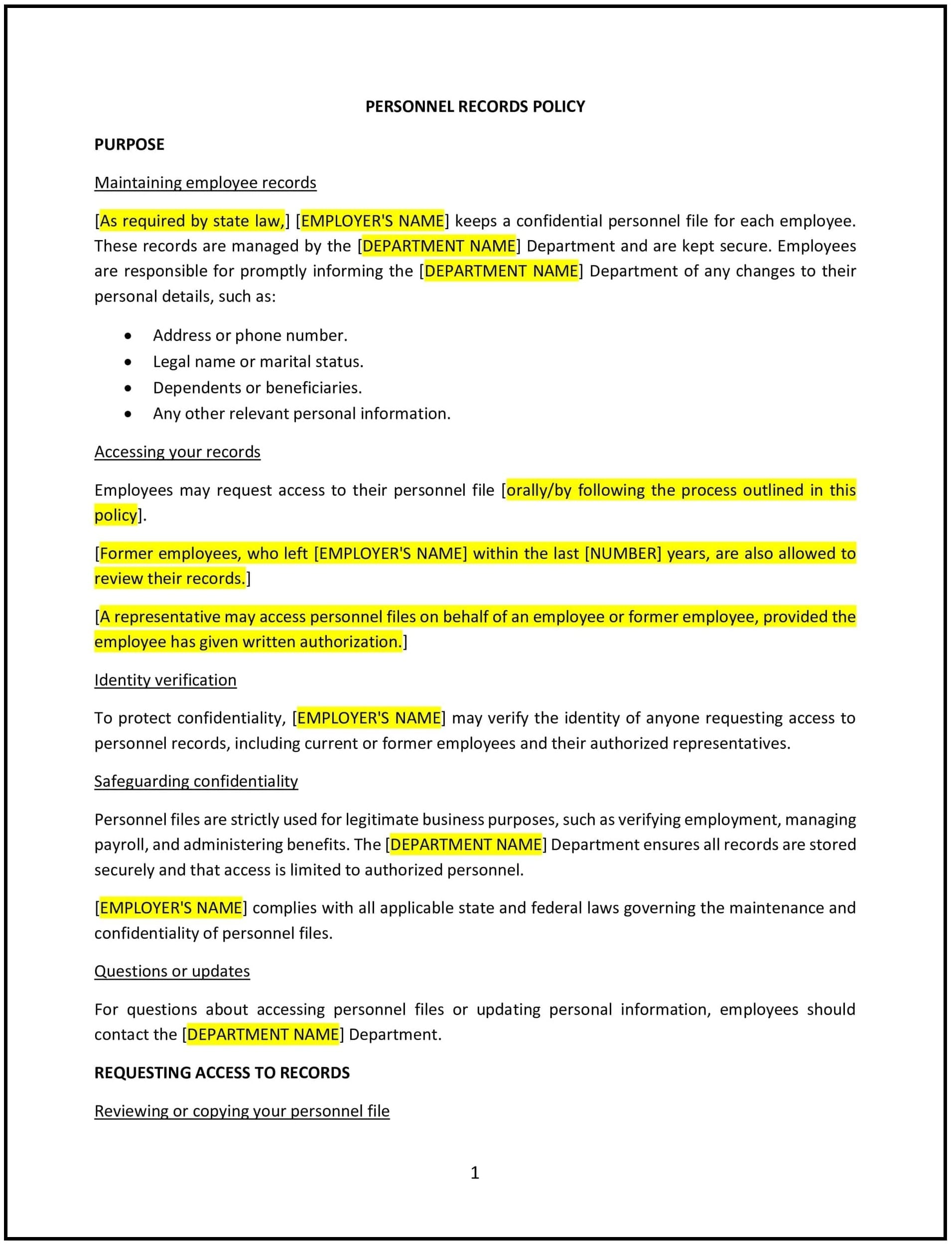Personnel records policy (Wisconsin): Free template
Got contracts to review? While you're here for policies, let Cobrief make contract review effortless—start your free review now.

Customize this template for free
Personnel records policy (Wisconsin)
A personnel records policy helps Wisconsin businesses manage employee records in a consistent, compliant, and confidential manner. This policy outlines the types of employee information that will be maintained, how the information will be used, and who will have access to it, enabling personal data to be handled in compliance with Wisconsin and federal laws.
By implementing this policy, businesses can ensure the confidentiality and integrity of employee records, reduce the risk of legal issues, and maintain transparency in their record-keeping practices.
How to use this personnel records policy (Wisconsin)
- Define personnel records: Clearly specify what constitutes a personnel record, including basic personal information (e.g., name, contact details), employment history, performance reviews, and any other relevant documents.
- Outline data access protocols: Establish who within the organization is authorized to access personnel records and under what circumstances, ensuring that access is granted only to individuals with a legitimate need to know.
- Specify record retention periods: Define how long various types of personnel records will be retained and the process for securely disposing of records that are no longer needed.
- Ensure confidentiality: Implement procedures to protect personnel records from unauthorized access, including secure storage (e.g., locked cabinets, encrypted digital files) and restricted access to physical and digital records.
- Provide employee access: Specify employees’ rights to access their own personnel records, including the process for requesting access and any timeframes involved.
- Comply with legal requirements: Ensure that the policy complies with Wisconsin state laws, the Fair Credit Reporting Act (FCRA), the Family and Medical Leave Act (FMLA), and any other relevant federal or state laws that govern personnel records.
Benefits of using this personnel records policy (Wisconsin)
This policy offers several benefits for Wisconsin businesses:
- Promotes legal compliance: Helps businesses comply with federal and state privacy and record-keeping laws, such as Wisconsin’s employee privacy laws and federal regulations like FMLA and FCRA.
- Protects employee privacy: Safeguards personal and sensitive information by limiting access to authorized personnel and ensuring proper data security practices.
- Reduces legal risks: Reduces the risk of legal claims related to improper handling or access to personnel records by following a clear, consistent policy.
- Enhances transparency: Provides employees with a clear understanding of how their records are handled and gives them the ability to access their own information upon request.
- Improves record management: Establishes a structured approach to storing and maintaining employee records, which supports operational efficiency and long-term record-keeping.
Tips for using this personnel records policy (Wisconsin)
- Communicate the policy clearly: Ensure that all employees understand how their records will be maintained, who will have access to them, and how they can request access to their own records.
- Secure storage and handling: Ensure that personnel records are securely stored, both physically and digitally, to prevent unauthorized access or loss of data.
- Review and update regularly: Regularly review the policy to ensure compliance with any updates to Wisconsin laws, federal regulations, or business needs.
- Train employees and managers: Provide training to managers and HR personnel on how to handle personnel records, respecting confidentiality and legal requirements.
- Set up a retention schedule: Implement a clear schedule for how long various records will be kept and when they should be safely destroyed to minimize unnecessary storage and avoid data breaches.